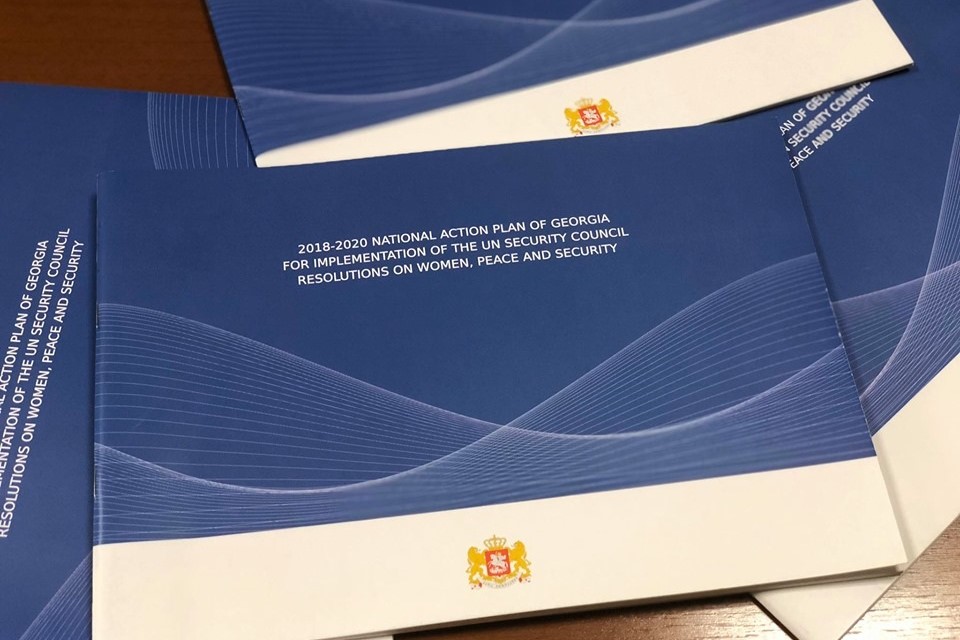Regular meetings on Geneva International Discussions continue in Georgia from the Women, Peace and Security perspective
Date:

UN Women, in partnership with the Ministry of Foreign Affairs of Georgia, organized an online meeting entitled “Geneva International Discussions and the Women, Peace and Security Agenda” with CSOs working in the field, including women’s organizations and conflict-affected women.
The meeting focused on the Women, Peace and Security (WPS) agenda and the importance of women’s active participation in peace talks. Also discussed were the needs of women affected by conflict within the framework of the Geneva International Discussions (GID) and the Incident Prevention and Response Mechanisms. Ambassador Marek Szczygieł, Head of the EUMM, underlined the importance of fully implementing the UN SC resolutions on WPS and heeding the need to support meaningful participation of women in peace and security processes.
The discussion further expanded on the humanitarian and security issues related to the official negotiations in COVID-19 context, as well as specific challenges and hardships experienced by the conflict-affected population in Georgia, including Abkhazia and Tskhinvali region/South Ossetia during the pandemic. Lasha Darsalia, Deputy Minister of Foreign Affairs and Head of the Georgian Delegation to the GID, provided a general update on the official negotiations and briefed participants in detail on the extremely aggravated situation amid the COVID-19 pandemic in Abkhazia and Tskhinvali region/South Ossetia and in the villages adjacent to the ABLs.
During the meeting, participants raised a number of issues exacerbated by the pandemic-induced restrictions impacting the conflict-affected communities, limiting their access to essential goods and services. “Restrictions introduced during the pandemic, such as the lockdown and the closure of checkpoints, created multiple barriers and problems for the people living on both sides of the ABLs in terms of access to services, such as health care (both mental and physical), communications, education, commerce and food, worsening their human security needs,” noted Ekaterine Gamakharia, Head of the Tbilisi Office of the CSO Cultural-Humanitarian Fund “Sukhumi”.
To provide further food for thought on the enhancement of women’s engagement in the peace process, UN Women presented its study on women’s meaningful participation in peace processes in Georgia. The study identifies barriers and provides recommendations to remove such barriers by fostering linkages between formal and informal peace processes, hence advancing the WPS agenda in the country.
Since 2014, regular information-sharing meetings between the Georgian participants of the GID and women’s CSOs have served as a platform for dialogue on official negotiations and mainstreaming women’s needs and priorities into the peace process.